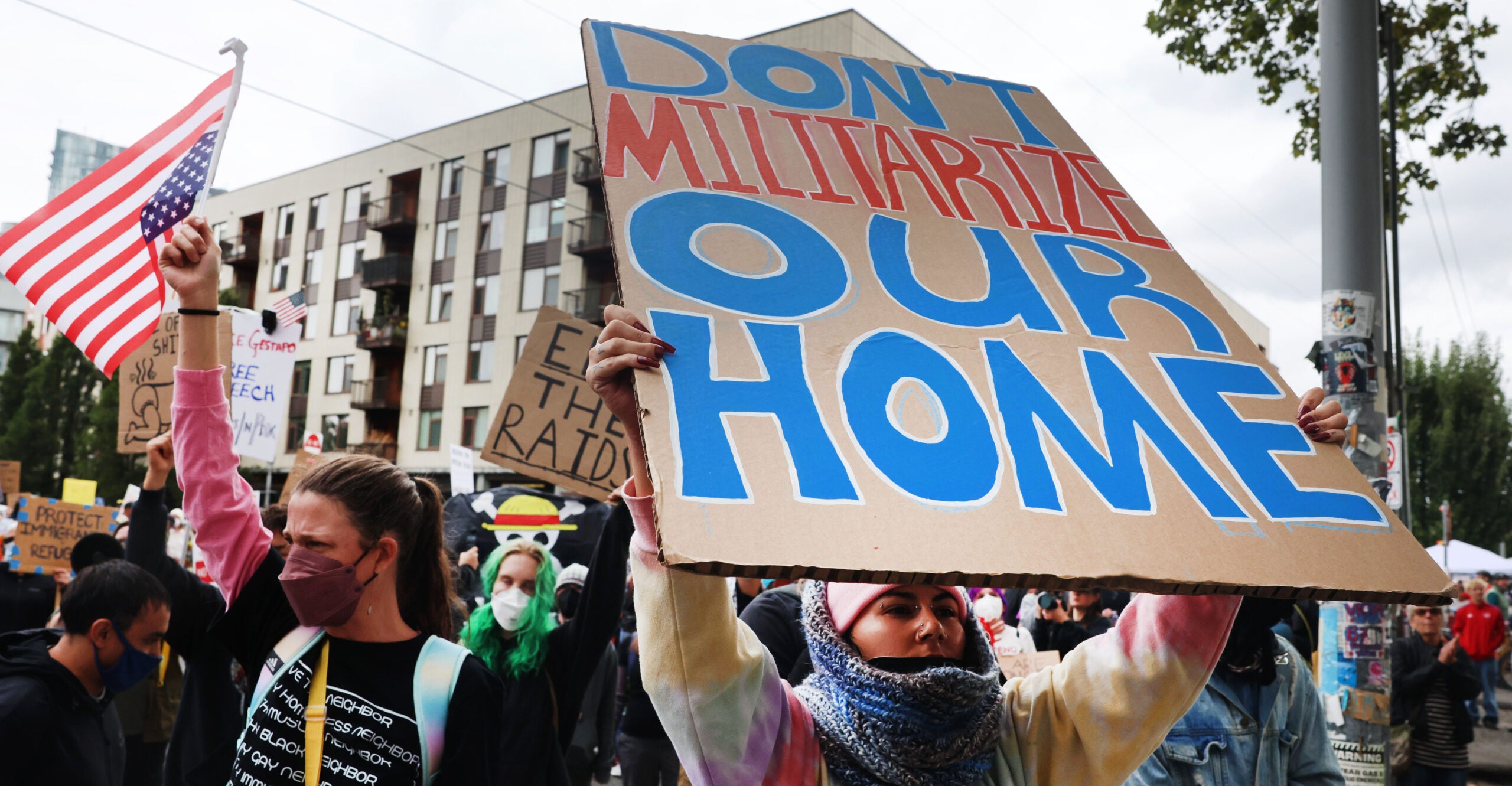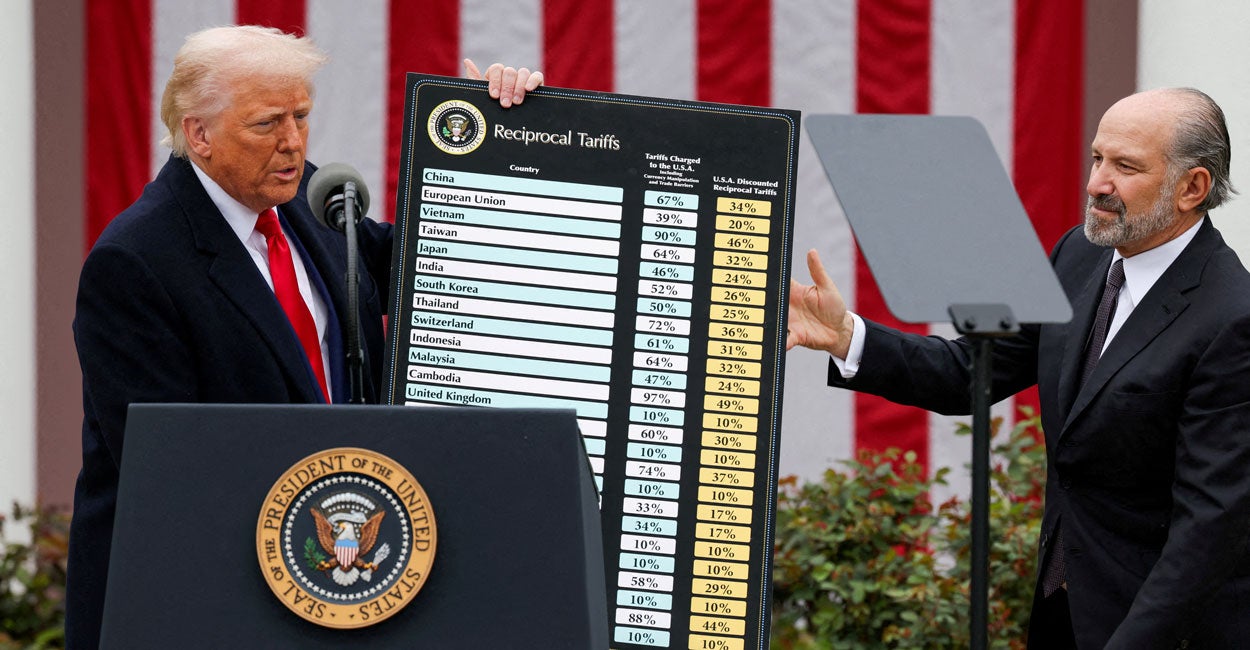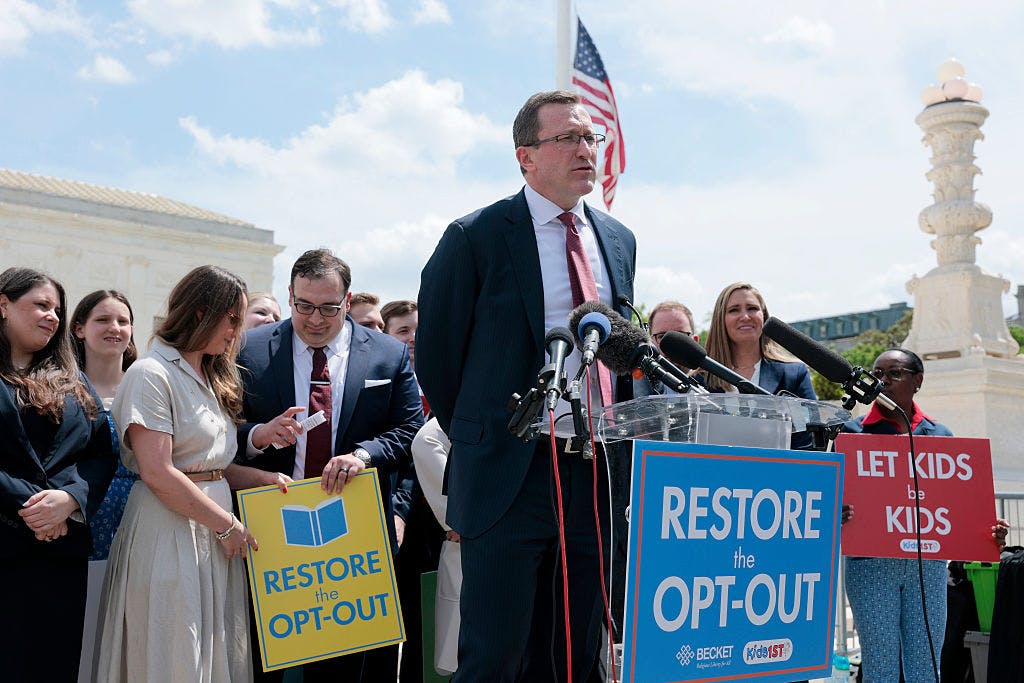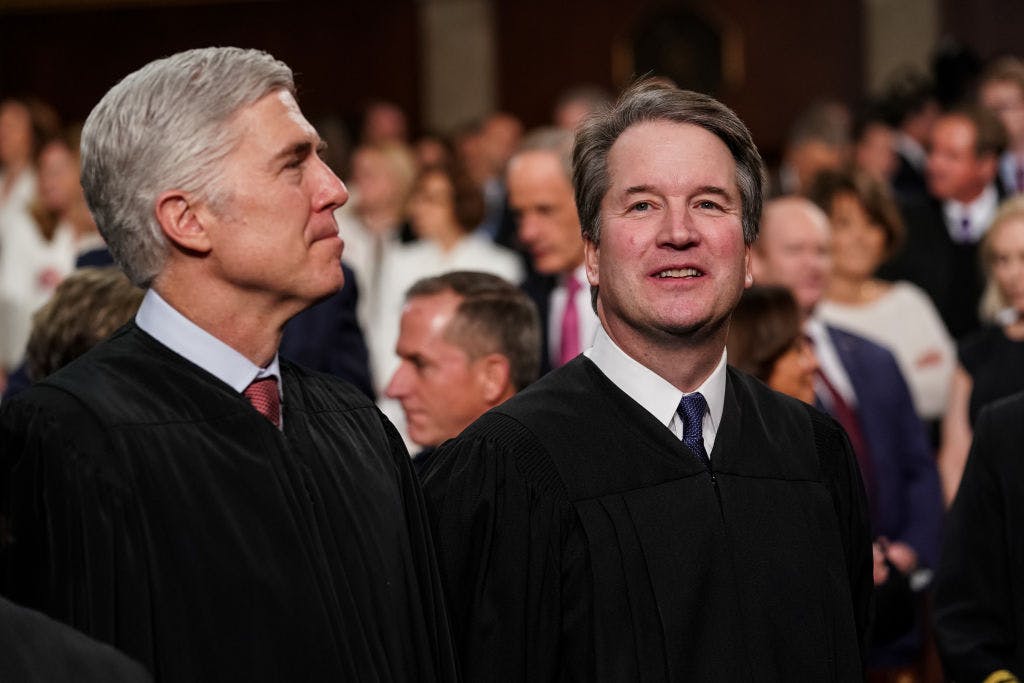‘REBELLION’?: Courts Weigh Oregon, Illinois Arguments Against Trump’s National Guard Deployments

Two federal courts heard arguments Thursday about President Donald Trump’s deployment of National Guard troops to quell unrest near U.S. Immigration and Customs Enforcement facilities in Portland, Oregon, and Chicago.
Live Your Best Retirement
Fun • Funds • Fitness • Freedom
“The district court found that the Portland ICE facility protests were small—less than 30 people—largely sedate and generally peaceful,” Oregon Assistant Attorney General Stacy Chaffin told the three-judge panel of the U.S. 9th Circuit Court of Appeals. The hearing was held remotely by video.
Two of the judges, Ryan Nelson and Bridget Bade, are Trump appointees. Another judge, Susan Graber, is a Bill Clinton appointee.
“Hold on. That’s clearly erroneous, because there’s clearly been protests that were above 30,” Nelson interjected. “Unless you’re trying to limit it to certain time periods. We have evidence in the record that there were as many as 200.”
Chaffin replied that in recent months, particularly in September when Trump called up the National Guard to go to Portland, protests were light.
Chaffin later characterized the anti-ICE demonstrations as “calm and sedated” demonstrations that should be protected free speech.
“That is not a reason to bring the military into the streets of Portland or any other city in the United States,” Chaffin argued.
However, Bade noted the ICE facility in Portland had to close for almost a month, from June 13 to July 7, because of the danger of the protests there.
“They couldn’t operate a facility. I don’t know that that ever happened in L.A.,” Bade said. “There were attempts to breach a facility here. A facility was actually closed for almost a month, and the record includes more than one, at least two attempts to burn the building down and vandalizing the building so that it’s difficult for the officers to move in and out of the building, and [it] increases danger. And the building is now currently boarded up.”
In Oregon, Trump’s National Guard deployment remains temporarily blocked by a court order. Oregon has argued the deployment is part of a nationwide campaign to assimilate the military into civilian law enforcement.
In the other case, U.S. District Judge April Perry in the Northern District of Illinois, an appointee of Joe Biden, heard arguments in a Chicago federal courtroom where both the city of Chicago and the state of Illinois are plaintiffs in the case to stop the guard deployment.
In Illinois, about 300 National Guardsmen from the state and 200 from the Texas National Guard have deployed to the greater Chicago area to protect the Immigration and Customs Enforcement facility there.
Both the Portland and Chicago cases mix politics about illegal immigration with a nearly two-and-a-half-century-old clash about federal laws’ supremacy vs. states rights. Illinois and Oregon contend the deployments violate state sovereignty. The Trump administration argues the federal government has full authority to protect federal facilities.
In Portland, police arrested 10 protesters in June outside an ICE facility for various charges that included second degree arson near the ICE building, assault of a public safety officer, harassment, and resisting arrest. Earlier that month, police arrested three anti-ICE protesters, two for alleged reckless burning and one for allegedly assaulting an officer.
The Department of Homeland Security reported that more than 100 rioters gathered outside the ICE processing facility in Chicago and that “rioters assaulted law enforcement, threw tear gas cans, slashed tires of cars, blocked the entrance of the building, and trespassed on private property.”
“This is hardly the peaceful and sedate crowd that plaintiffs tried to make it out to be. These are violent people, and at any point we let down our guard, there is a serious risk of ongoing violence,” assistant U.S. Attorney General Eric McArthur argued to the three-judge 9th Circuit appeals panel with regards to Portland.
“At some point, the president is entitled—when his subordinates are telling him we are overstretched, this is unsustainable, the officers aren’t available to do their jobs, they’re not available to surge to other places where we face violence—the president is entitled to say enough is enough and bring in the National Guard,” McArthur said.
Graber, the Clinton appointee, asked McArthur to clarify the Justice Department’s definition of rebellion that would justify federalizing the National Guard. A lower court ruled a rebellion could only be defined as the attempt to violently overthrow the government.
McArthur cited the Whiskey Rebellion of the 1790s, in which farmers and distillers in the Northeast had an uprising over an excise tax on whiskey. President George Washington directed a military response to quell the rebellion.
“Of course, no dictionary definition of the term ‘rebellion’ requires that it be aimed at overthrowing the entire government. That wouldn’t pick up historical circumstances like the Whiskey Rebellion, and I think it would lead to some pretty untenable results,” McArthur said.
“For example,” he continued, “if you had a state governor who activated the National Guard and ordered them to shut down every ICE facility in the state, a president couldn’t say that’s a rebellion against the authority of the government and activate the National Guard, because that’s not aimed at overthrowing the entire government.”
Chaffin argued the court should be cautious in its definition.
“A rebellion is an open, organized, or armed resistance to an established government or an attempt to change the government or the leader usually through violence,” Chaffin said. “That is the appropriate definition that this court should adopt in this case.”
She added, “The defendant’s [the federal government’s] proposed definition here is so broad that it could potentially encompass a significant amount of protected speech and protest activity.”
Nelson said he sympathized with a “slippery slope” argument of defining rebellion too broadly, but he said that Chaffin’s definition was likely too narrow.
“I’m not even sure President Lincoln would have been able to bring in forces when he did, because he’d have to wait,” Nelson said. “If he didn’t do it immediately after Fort Sumter, your argument would be, ‘Oh, things are OK right now.’”
Decisions in both cases are pending.
The post ‘REBELLION’?: Courts Weigh Oregon, Illinois Arguments Against Trump’s National Guard Deployments appeared first on The Daily Signal.
Originally Published at Daily Wire, Daily Signal, or The Blaze
What's Your Reaction?
 Like
0
Like
0
 Dislike
0
Dislike
0
 Love
0
Love
0
 Funny
0
Funny
0
 Angry
0
Angry
0
 Sad
0
Sad
0
 Wow
0
Wow
0












































































